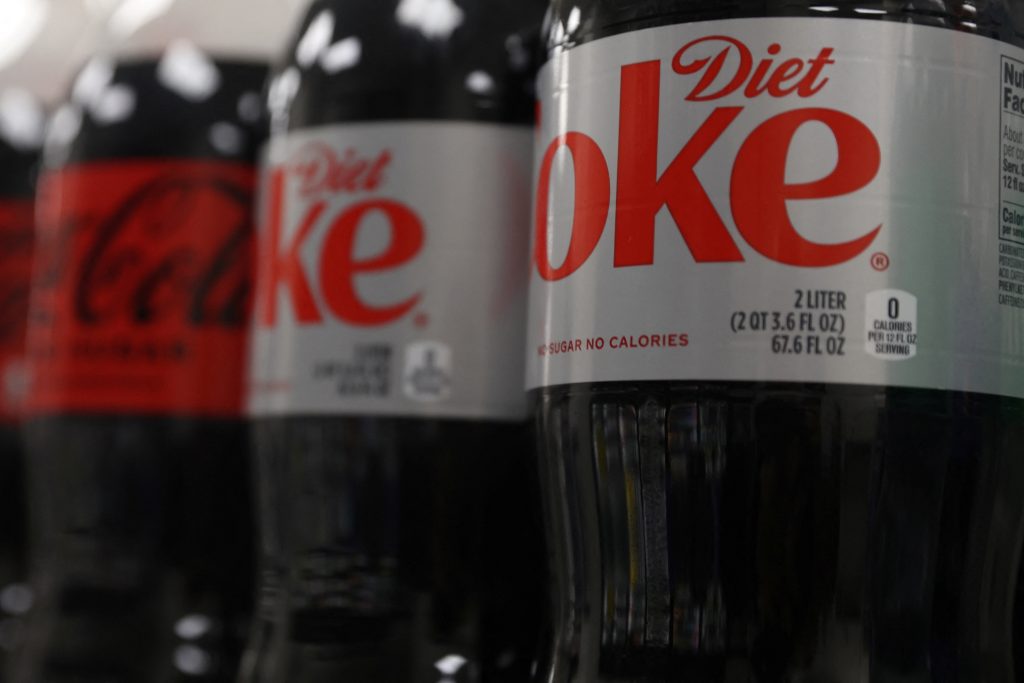According to a research by the World Health Organisation, aspartame may “possibly” cause cancer in humans, according to a committee of 25 international experts.
The new classification, which is based on an analysis of “limited evidence,” does not alter the suggested daily intake cap for the artificial sweetener. Dr. Francesco Branca, head of the WHO’s Department of Nutrition and Food Safety, said during a press conference in Geneva that the results “do not indicate that occasional consumption should pose a risk to most consumers.”
He said that “high consumers” of diet soda or other aspartame-containing items have a problem. Branca declared, “We have, in a sense, raised a flag here,” and he urged additional study.
However, citing safety data, the U.S. Food and Drug Administration asserts that it disagrees with this new classification. According to a written statement provided to NPR by an FDA official, the WHO’s classification of aspartame as “possibly carcinogenic to humans” “does not imply that aspartame is actually linked to cancer.”
Read More: Jaw-Dropping Encounter: Burmese Python Longer Than a Giraffe Found in Florida
The WHO has long set the acceptable daily intake, or ADI, of aspartame at a maximum of 40 milligrams per kilogram of body weight per day. So, a person who weighs 60 kilograms (about 130 pounds), could consume up to 2,400 milligrams per day, which is roughly equivalent to 12 cans of Diet Coke — much higher than most people consume.
While the WHO is not changing the acceptable daily intake, Branca says “we’re just advising for a bit of moderation.” If people consume aspartame as a way to avoid sugar and control weight, “the benefit is not there,” Branca says.
In the US, aspartame was given the go-ahead to be used as a sweetener in 1974. Coca-Cola started adding the artificial sweetener to Diet Coke in the 1980s and popularised the calorie-free beverage with eye-catching advertising campaigns that emphasised its flavour. Despite its widespread use, there have always been sceptics and detractors, and recent modest studies indicate that artificial sweeteners may change the microbiome and enhance food cravings in some individuals. The World Health Organisation set out to review all the material because a few recent studies also suggest possible cancer concerns.
The WHO’s decision to maintain the previously defined “acceptable daily intake” supports the FDA’s position, according to the American Beverage Association, a lobbying group that represents The Coca-Cola Co., PepsiCo, and Keurig Dr. Pepper. In response to the World Health Organization’s study of aspartame, Kevin Keane, interim president and CEO of American Beverage, declared that aspartame is safe.
There is conflicting research regarding whether diet soda aids in calorie restriction or weight management. Both routes have been studied. The WHO research indicates that there are no long-term advantages, but some studies have suggested that switching from calorie-containing to calorie-free beverages may be beneficial.
Willett believes there is little data to support the relationship between aspartame and cancer in humans, but he does think diet soda has a place for those attempting to control their weight and consume less sugar. In his analogy, diet soda is like a nicotine patch: “Possibly helpful for some people to transition from dependence, but not the best long-term solution.”
